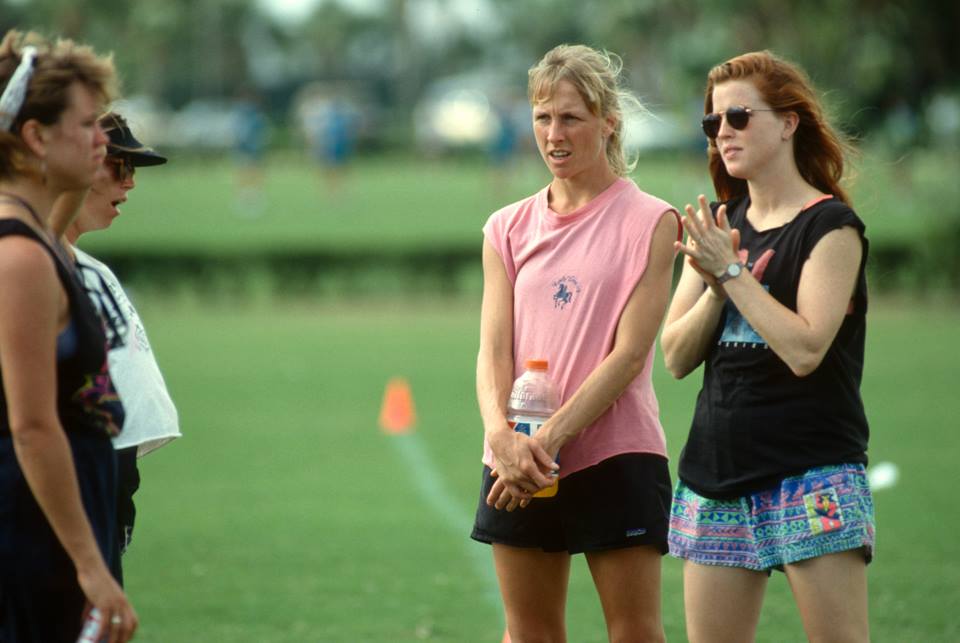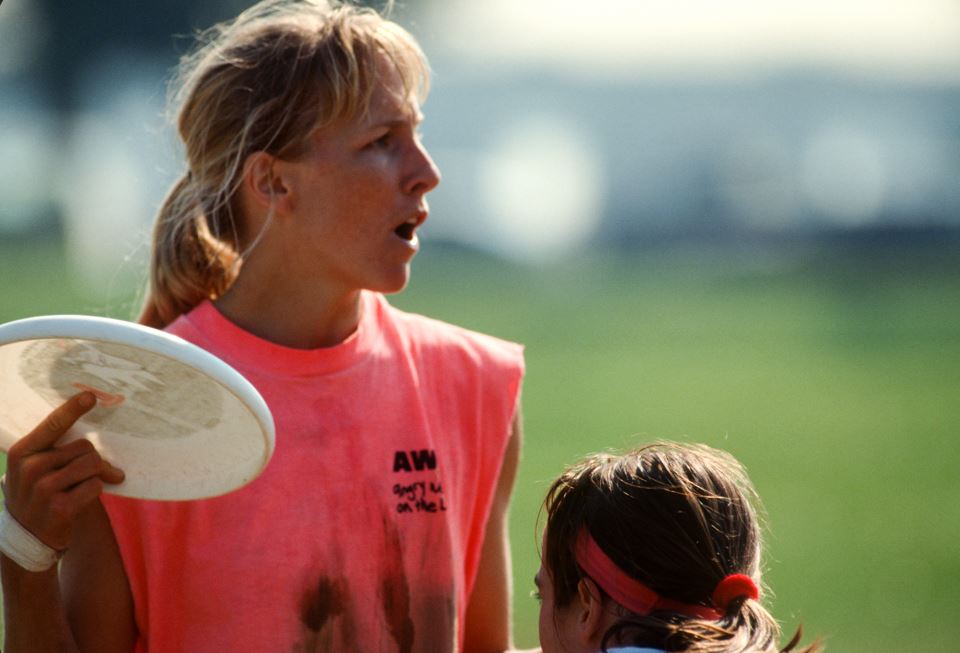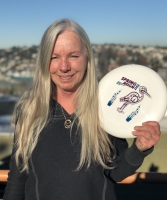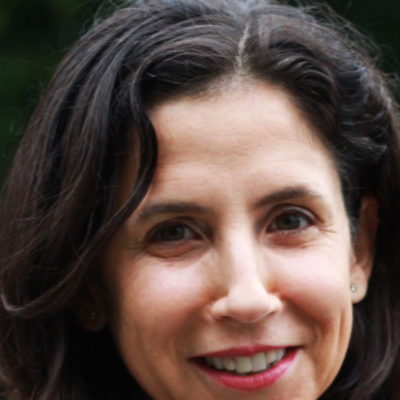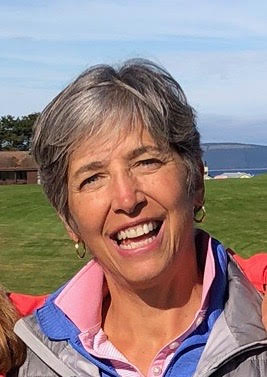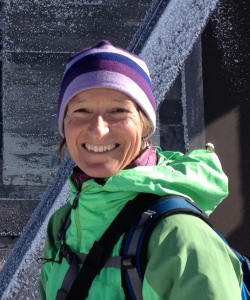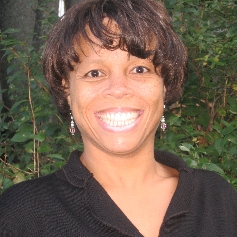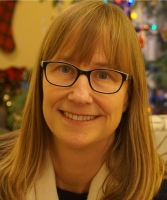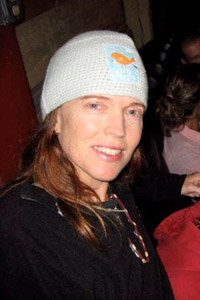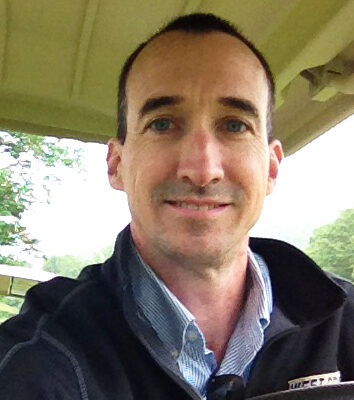
Class of 2015
Lori Van Holmes
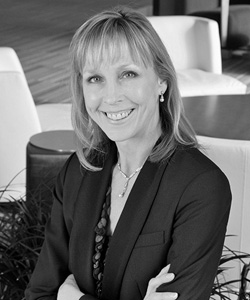
Lori Van Holmes
Hometown: Minneapolis, MN
Born: 1961 (Age 64)
Career Information
Club
Masters
U.S. National Championships
2x U.S. Club Runner Up (1995, 1998)
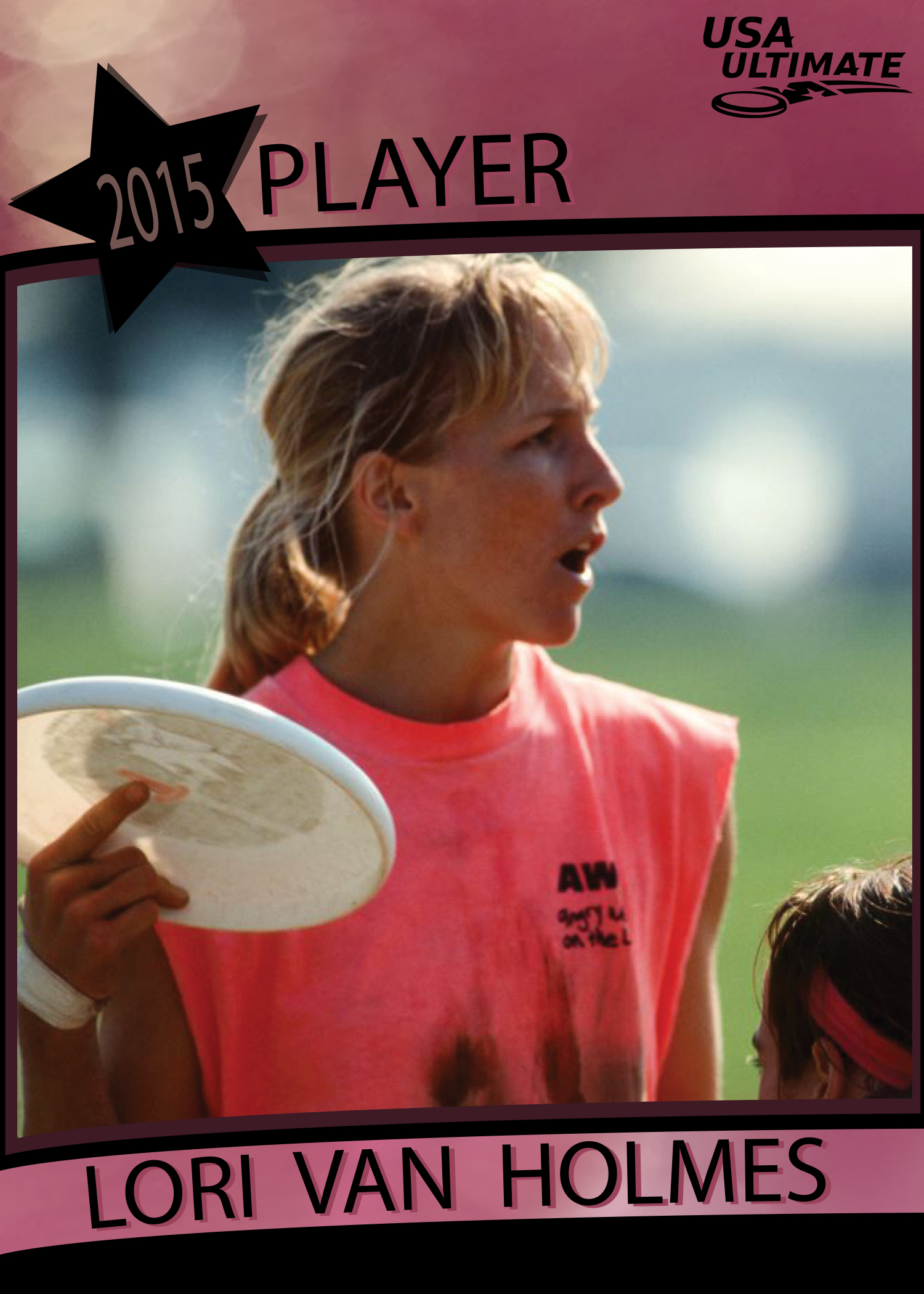
Lori started her competitive ultimate career on open teams in the early 80’s, founded and captained women’s ultimate in Minneapolis (Repo Women). With the skills to play any position, Lori has always been a key team member and continued her winning ways with 11 women’s national championship appearances (three finals and five semifinals): Chicago’s Nemesis semifinals in ‘87; Boston’s Lady Godiva semifinals in ‘90; Seattle’s Women on the Verge (WOTV) finals in ‘92, ‘95 and ’98 and semifinals, ‘97, ‘99 and ‘94; and two more semifinals in the mixed division with Seattle’s Shazam in ’02 and 03. She competed in three WFDF World Championships, earning the gold in Vancouver with WOTV in 1997.
Lori was a driving force in the growth of ultimate in the Northwest and captained WOTV through their glory years, demonstrating her commitment as a leader and stellar athlete. Lori was a two-way starter, a defensive standout and prolific receiver; one of the strongest runners in the sport. In addition to her ultimate play, Lori displayed a true commitment to giving back to ultimate by serving as West Region Coordinator, coaching college and high school ultimate teams and running tournaments and clinics. She mentored and inspired scores of women who have promoted our sport with passion and excellence.
Contributions & Service
- 1984-1987: Founded and captained Repo Women, the first Women's division team in Minneapolis
Championship Tournaments
U.S. National Championships
| Year | Team | Placement |
|---|---|---|
| 1987 | Nemesis Club Women | 6th |
| 1988 | Nemesis Club Women | 5th |
| 1999 | AWOL Club Women | 7th |
| 1990 | Lady Godiva Club Women | 3rd |
| 1992 | Women on the Verge Club Women | 5th |
| 1994 | Women on the Verge Club Women | 3rd |
| 1995 | Women on the Verge Club Women | 2nd |
| 1997 | Women on the Verge Club Women | 3rd |
| 1998 | Women on the Verge Club Women | 2nd |
| 2002 | Shazam Club Mixed | 3rd |
| 2009 | Mint Masters Women | 3rd |
World Championships
| Year | Tournament | Team | Placement |
|---|---|---|---|
| 1993 | WUCC Madison, Wisconsin | Women on the Verge Club Women | 3rd |
Interview
What position(s) (e.g., handler, deep cutter, middle-middle) did you usually play?
I have played all positions and have the ability to play all positions well. Up until my retirement, I was on the ‘A’ squad for both offense and defense. On offense, my speciality was getting open anywhere on the field. If my role was handler, I usually cut as the second or third person in a string to receive the pass. I had the ability and penchant to huck it long and deep. My backhand was extremely quick and I could put it to space for a teammate to run down. As a receiver in the end zone, I was one of the primary scorers on any team I played on. There have been a few games that, out of 17 points, I scored 12. Of course, it helps to have throwers who can get it to you, but the art is setting up your cut to make sure you are the obvious choice, and that is what I specialized in, timing my cuts and setting them up to be that choice.
On defense, I played strong person-on-person, fronting defense. In the zone, I could play anything, but I primarily played deep-deep or middle-middle. I was on the A squad for defense and, if there was a crucial point, I was on the field doing whatever it took to shut my person down.
Describe your major accomplishments – both as a teammate and an individual player?
Starting the women’s team in Minnesota
Being competitive on three different men’s teams
Captaining and being a go to playmaker for one of the winningest teams in ultimate: Women on the Verge
Introducing a performance management system to Seattle women’s team (still used today) – captains spend quality one on one time reviewing a players strengths and opportunities. This is also an opportunity for goal setting with the individual and chance for them to tell the captain in an individual setting how the captain or the team could help them get better.
Being able to have two kids and a career while continuing to captain, lead and be a major contributor on the field both on offense and defense
Coaching the University of Washington – moving their ranking from 80th to 15th in twelve months
Winning worlds of 97 was one of the most amazing experiences I have been apart of. WOTV had not qualified for the tournament despite being the current world champion. After extreme hardship to gain entry and only finding out the night before the tournament began that we could participate, we ended up in Vancouver, playing our hearts out to make to the finals. In the games leading up to qualifying, I had gotten numerous hand blocks, made defensive plays and got things moving on offense. I had a game changing layout block against England Red Lights to take us to the finals. Once the finals began, almost immediately there was a severe injury to Sarah GR, who needed to leave the field on a stretcher. When play resumed, Verge went down by four points. I called a timeout and gave an extremely emotional motivational speech to the team about how the best way to honor Sarah would be to win the game, not to feel sad and lose. The team came together in the most incredible fashion, each person contributing in some way. I played a huge factor in that game, scoring numerous points and making several offensive layouts.
Winning the Individual Spirit of the Game Award at worlds in Hawaii – given by Prime Canada
Receiving calls or cards from players I have played with or coached, telling me how much I made a difference for them in the sport of ultimate
Forging many deep long-lasting friendships with people from all over the world.
Why did you stand out among the elite players of your time? What was it that you did best, or were known for?
My competitive drive and never quit attitude – I always gave it my all for any team I played on. On offense, I was a driving force, both catching and throwing goals. On defense, I consistently shut down the top players in the sport with fronting defense, hand blocks, layout d’s and deep poaching. My speed provided the ability to cover a lot of ground, track down deep hucks for defense and score goals on offense. I was well respected by my teammates. As for my competitors, like in any sport, some liked me and some didn’t. I had a very aggressive and competitive demeanor on the field, but I was also the type of person that, at the end of the day, no matter what the situation, one could sit down with and share a beer after the game.
In addition to my play and athleticism, I was known for my leadership and motivational encouragement to others. No matter what, I always gave my teammates positive feedback and skills coaching, and I was a vocal contributor from the sideline. If I was hurt, I would not give up; I contributed in any way possible, even playing a modified role if needed. For example, at Tune Up in Chicago, 1998, I sprained my throwing hand on a layout in the semifinals. This injury did not allow me to throw beyond five yards. During the finals, I became the deep target, scoring numerous goals to win the tournament. Injuries or maladies could not keep me down; I have played with a cracked rib, separated shoulder, fractured foot, wires in my hand after reconstructive thumb surgery, plantar factious and even while pregnant. I also have torn my calf completely and come back from rehab within six weeks to play. It took a lot to keep me off the field. I am extremely dedicated and was known for being a person who always gave it her all, no matter what the situation.
Last but not least, I was known for scoring goals and getting defense. During tough situations or critical points, I was a player that the team wanted on the field. Women on the Verge had a website where teammates were asked to provide a synopsis or pithy quote about each other. The quote that they had for me was, “I’m glad she’s on my team!” The deeper meaning: “We would hate to play against her.”
What role did you play on the best (or most overachieving team) that you played on?
My primary role for Women on the Verge was being a starter for both offense and defense. I always had some type of leadership role, either as captain or sub caller. On offense, I played all positions; handler, deep and middle. My sweet spot was scoring goals, either as the receiver or with a deep backhand huck. On defense, I was know for stopping handler cuts by fronting and was blessed with great field awareness. If the disc was in my area, whether it was my person or not, there was a chance I would get it. In the zone, I could play all positions, but my speciality was deep-deep or middle-middle in the cup. Teammates and opponents alike have let me know that I was a great role model for both my team and other teams as a woman who could have children and still continue to play at the highest level.
What year was the peak of your career? During which years were you playing as the "stud" of your team? If you continued playing after your peak years, how did your role change? In what year did you stop playing at the top competitive level?
If there had to be one period of time, it was 1993-2001. During this time period, I was on the ‘A’ squad for offense and defense. Rarely was there a game where I didn’t score at least five goals. Part of my job was to cover some of the toughest people for the competition and, consequently, those same people coverered me: Molly Goodwin, Gloria Lust, Nicole from Fury, Annie Kremil, Nancy Glass, Sarah Savage, Molly Barnes, Kathy Porter and Chris O’Cleary to name a few. My team counted on me athletically and, as a leader, to run strategy and provide inspiration. During the time frame of 1995-1999, WOTV won just about every tournament we attended except nationals.
On a side note, during this time frame, I had the good fortune to be ‘in action shots’ for two catalogues, Patagonia and KAVU, as well as the UPA newsletter, ultimate calendar and Nike video shoot. After Verge and playing on Posse and Shazam at age 40, I was still making things happen on offense and defense, playing a lead role and being one of the go to players for these teams. I stopped playing in 2003, but I had a brief stint (during the beginning of retirement after moving from Seattle back to Minnesota) with Bait, helping them in 2004 for the tail end of the season. At age 43, during regionals, I was the oldest person on the team by a long shot and scored over half the goals. Playing at Potlatch in 2006, over 90 percent of the team was over the age of 40. We were in a tough pool (the eventual tournament champions were in our pool), but we made it to the back door semifinals of the B pool, and I scored about a third of our overall points. So, while older, I was still able to get open and make things happen; it just hurt a lot more!
I have been playing for over 24 years and feel extremely proud and lucky to be able to contribute at this level for so long. It hasn’t been easy, but it’s been a great and incredible ride.
Why do you believe you are worthy of being inducted into the Ultimate Hall of Fame?
Performance and longevity.
I have been able to play longer than most still competing at the top of my game. Despite having a career, two kids and a husband who played competitively, I was able to participate at the highest level. My daughters were both raised on the ultimate field and are better people because of it. Carli was one month old at her first tournament at Solstice, and Madison was 10 days old at Santa Cruz in 1994. Any team I have been on has seen improvement because of my athleticism and leadership. During my tenure with WOTV, I introduced a Performance Management approach that carried over to Riot.
I have made contributions at the women’s and mixed levels, coached a college team and coached high school players. My career with WOTV was long and decorated, but my contributions with Shazam over the age of 40 were equally impressive, being one of the primary point getters for the team. The University of Washington’s women’s team is better today because of the work I put in as a coach. I feel honored and lucky that I have been able to contribute to the sport of ultimate for over 24 years!
